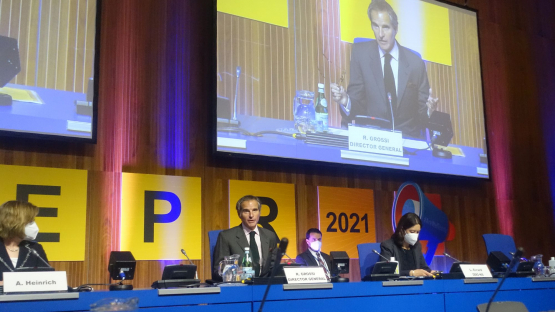Experts in preparedness and response for nuclear and radiological emergencies concluded at a recently held IAEA conference that cooperation and coordination under a unified management system with a clear understanding of roles and specific responsibilities, which are tested regularly and involve all relevant stakeholders, are crucial to ensuring effective emergency preparedness and response to nuclear and radiological emergencies.
In his opening remarks, IAEA Director General Rafael Mariano Grossi was clear on the need for international cooperation in this field: “When it comes to nuclear emergencies, and our response to them, it is the international nature of the effort that is going to make them really effective. Hence, this community, our community, is so essential to what we are doing.”
The International Conference on the Development of Preparedness for National and International Emergency Response (EPR2021), was held last month over a five-day period at the IAEA headquarters in Vienna, Austria and online for virtual participants. The hybrid format conference brought together over 550 in-person participants and virtual observers spanning 90 Member States.
Emergency preparedness demands an effective and regular exchange of information. Deputy Director General and Head of the Department of Nuclear Safety and Security Lydie Evrard said: “Partnerships, collaboration and coordination are the cornerstone of our shared culture. In this regard, the Safety Standard Committee for Emergency Preparedness and Response (EPReSC) and the Response and Assistance Network (RANET) are key partnerships. We also rely on the Competent Authorities and International Network for Education and Training for Emergency Preparedness and Response.”
When it comes to nuclear emergencies, and our response to them, it is the international nature of the effort that is going to make them really effective.







